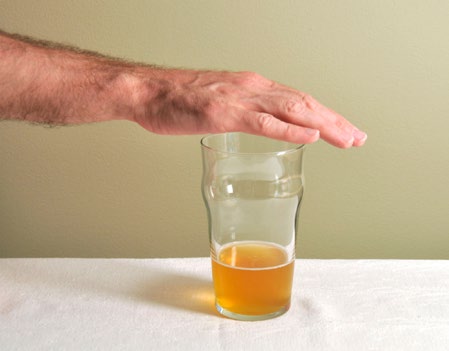National Center for Health Promotion and Disease Prevention
Limit Alcohol
If you choose to drink alcohol, drink in moderation. Avoid "binge drinking." If you are concerned about your drinking, talk to your VA health care team about getting help.
What's Important to Know?
If you choose to drink alcohol, drink in moderation. This helps reduce your risk for alcohol-related health problems. Here are the recommended drink limits:
One standard drink is equivalent to:
- Female: No more than 1 drink in a single day and no more than 7 drinks per week
- Male: No more than 2 drinks in a single day and no more than 14 drinks per week
- All adults age 65 and older: No more than 1 drink a day and no more than 7 drinks per week
- Pregnant people or those who might be pregnant: Do not drink any alcohol
Do not binge drink. Binge drinking means drinking:
- 4 or more drinks on one occasion for females and all adults age 65 and older
- 5 or more drinks on one occasion for males
Note: The above guidelines for female and male are based on binary sex assigned at birth and not on gender identity. There are no established drinking guidelines for transgender, non-binary, gender diverse, and intersex people. There are differences in how their bodies handle or process alcohol. These individuals should talk with their health care team about recommended drink limits.
One standard drink is equal to any one of the following:
- 12 oz. regular beer, usually about 5% alcohol
- 8-9 oz. malt liquor (7% alcohol)
- 5 oz. table wine (12% alcohol)
- 1.5 oz. 80-proof hard liquor (40% alcohol)
For many adults, drinking small amounts of alcohol does not cause serious health problems. However, as we age, our bodies do not process alcohol as easily. People who drink within recommended limits are at lower risk for developing problems with alcohol use. Some people, such as children, anyone who is pregnant or might be pregnant, and those with certain medical conditions, should not drink any alcohol.

Want to Know More?
Talk with your VA health care team if you have questions about limiting alcohol or are concerned about your drinking. They can help you reduce risky drinking. Alcohol dependence can be treated.
Resources
- Veterans Health Library: Limit Alcohol
- Veterans Health Library: Alcohol Use Disorder and Treatment Options
- National Institute on Alcohol Abuse and Alcoholism (NIAAA): Alcohol's Effect on Health
- VHA National Center for PTSD: PTSD and Problems with Alcohol Use
























